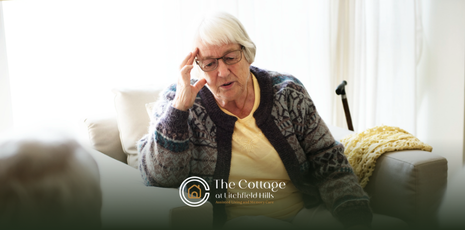Choosing an Assisted Living Community: Questions to Ask

Selecting the right assisted living community for yourself or a loved one is a major life decision. With so many options available, each with different services, amenities, and approaches to care, it's essential to know what to look for and which questions to ask during your search.
This guide will help you make an informed, confident decision by walking you through the most important areas to evaluate. We’ll cover questions to ask about care services, staff qualifications, safety, cost, lifestyle, and more.
Why the Right Questions Matter
Assisted living isn’t just about care—it’s about comfort, independence, and quality of life. Asking the right questions during tours or consultations allows you to:
- Understand the level of support provided
- Compare communities more effectively
- Gauge how well the environment suits your or your loved one’s needs
- Identify hidden costs or concerns
- Ensure long-term satisfaction with the decision
Being prepared with clear questions empowers you to choose with confidence and peace of mind.
Key Categories of Questions to Ask
Below are essential questions grouped into categories. You can use this as a checklist or bring it with you during community visits.
1. Care and Health Services
The quality and scope of care is one of the most important aspects to evaluate.
Questions to Ask:
- What kind of assistance is available for activities of daily living (ADLs)?
- Is care available 24/7, and who provides it (CNAs, RNs, etc.)?
- How are care plans created and updated?
- How is medication managed and monitored?
- Are there visiting medical professionals such as doctors or therapists?
- What happens if a resident’s care needs increase over time?
Tip: Ask to review a sample care plan or speak with a care coordinator to get a better understanding of the process.
2. Staffing and Qualifications
Caring for seniors requires specialized training, patience, and compassion.
Questions to Ask:
- What is the staff-to-resident ratio, especially during nighttime hours?
- What certifications or training does the staff have in senior care or dementia?
- How are staff members trained to handle emergencies or challenging behaviors?
- What is staff turnover like?
- Can residents and families request preferred caregivers?
Tip: Observe staff interactions with residents during your tour—are they warm, respectful, and attentive?
3. Safety and Security
Peace of mind is essential when trusting a community with your loved one’s well-being.
Questions to Ask:
- Are the buildings and rooms equipped with emergency call systems?
- How are falls or medical emergencies handled?
- Is there 24/7 on-site security or monitoring?
- How are visitors screened and building access controlled?
- Are there fire alarms, sprinklers, and regular safety drills?
4. Living Spaces and Accommodations
Comfort and privacy matter—ask about options and how personal preferences are accommodated.
Questions to Ask:
- What types of rooms or apartments are available (studio, one-bedroom, shared)?
- Are rooms furnished, or can residents bring their own furniture?
- Is housekeeping included?
- Can residents personalize their living space?
- Is there a private bathroom and kitchenette?
Tip: Take a tour of different room styles to see what fits your loved one’s lifestyle and preferences.
5. Dining and Nutrition
Healthy, enjoyable meals are a core part of resident satisfaction.
Questions to Ask:
- Are meals prepared on-site by a chef or kitchen staff?
- How are dietary restrictions and preferences accommodated?
- Are snacks and beverages available between meals?
- Can residents eat in their rooms if desired?
- How often does the menu change, and can we see a sample menu?
6. Social Life and Activities
A robust social environment can improve mental, emotional, and physical health.
Questions to Ask:
- What types of daily activities are offered (e.g., exercise, games, crafts)?
- Are there group outings or events with the local community?
- Are activities tailored to different abilities and interests?
- Is participation required or optional?
- How are new residents encouraged to engage socially?
| Activity Type | Examples |
|---|---|
| Physical | Chair yoga, walking groups |
| Creative | Art, knitting, music |
| Social | Happy hours, card games, movie nights |
| Cognitive | Trivia, book clubs, puzzles |
| Spiritual/Emotional | Worship services, meditation |
7. Cost and Payment Options
Understanding costs and financial policies upfront is crucial to long-term planning.
Questions to Ask:
- What is the base monthly cost, and what does it include?
- What services incur additional fees (e.g., medication management, extra care)?
- Are utilities, laundry, and meals included?
- Is there a one-time entrance or community fee?
- What happens if a resident’s financial situation changes?
| Cost Item | Covered in Base Fee? | Extra Charge |
|---|---|---|
| Room and Board | ✔️ | |
| Medication management | ✔️ | |
| Personal care assistance | ✔️ | |
| Activities and events | ✔️ | |
| Transportation | ✔️ |
Tip: Request a detailed cost breakdown and any contracts or agreements to review at home.
8. Licensing, Accreditation, and Inspections
Ensure the community meets state and industry standards.
Questions to Ask:
- Is the community licensed by the state?
- Are there any recent inspection reports or violations?
- Are staff background checks conducted?
- Is the facility affiliated with any professional organizations or certifications?
9. Family Communication and Involvement
Families should be part of the care team, with open lines of communication.
Questions to Ask:
- How are families kept informed about a resident’s well-being?
- Can families join activities or events?
- Are there regular care plan meetings?
- How are concerns or complaints addressed?
- Are family support groups offered?
10. Transitions and Continuity of Care
As needs change, the community’s ability to adapt becomes critical.
Questions to Ask:
- Can residents age in place, or will they need to move if care needs increase?
- Are memory care or skilled nursing services available on-site or through partnerships?
- How are hospitalizations or rehab stays managed?
- What is the discharge policy?
What to Look for During a Visit
In addition to asking questions, pay attention to the overall environment:
- Cleanliness and maintenance
- Smiles and eye contact from staff
- Residents appearing content and engaged
- Noise levels and lighting
- Interaction between residents and caregivers
Don’t hesitate to ask for a second visit, especially during mealtimes or an activity, to get a fuller picture.
Questions to Ask Yourself After the Tour
After gathering information, take time to reflect:
- Did the staff seem kind and attentive?
- Did the environment feel like a good fit for your loved one’s personality and needs?
- Could you envision your loved one being happy here?
- Were costs clear and within your budget?
- Did the community offer room for care to evolve?
How to Compare Communities: Sample Evaluation Table
| Category | Community A | Community B | Community C |
|---|---|---|---|
| Staff Friendliness | ⭐️⭐️⭐️⭐️ | ⭐️⭐️⭐️⭐️⭐️ | ⭐️⭐️⭐️ |
| Cleanliness | ⭐️⭐️⭐️⭐️⭐️ | ⭐️⭐️⭐️⭐️⭐️ | ⭐️⭐️⭐️⭐️ |
| Activities Offered | ⭐️⭐️⭐️⭐️ | ⭐️⭐️⭐️ | ⭐️⭐️⭐️⭐️⭐️ |
| Cost Transparency | ⭐️⭐️⭐️ | ⭐️⭐️⭐️⭐️⭐️ | ⭐️⭐️⭐️⭐️ |
| Safety Features | ⭐️⭐️⭐️⭐️⭐️ | ⭐️⭐️⭐️⭐️ | ⭐️⭐️⭐️ |
| Overall Fit | ⭐️⭐️⭐️⭐️ | ⭐️⭐️⭐️⭐️ | ⭐️⭐️⭐️⭐️ |
Use your notes from visits and interviews to compare and contrast, helping you make the best decision.
Final Thoughts
Choosing an assisted living community is about finding the right balance of care, comfort, community, and cost. It’s not just a place to live—it’s a place to thrive. The more questions you ask, the better equipped you’ll be to choose a safe, engaging, and supportive environment where your loved one can flourish.
For a senior living community that welcomes your questions and puts resident care first, visit The Cottage at Litchfield Hills and experience how personalized living can feel like home. Contact us today!
Frequently Asked Questions
When should I start looking into assisted living for a loved one?
It’s best to start researching options when early signs of needing help with daily activities appear. Planning ahead prevents rushed decisions during emergencies.
What’s the difference between assisted living and nursing homes?
Assisted living offers support with daily activities in a more home-like setting, while nursing homes provide more intensive medical care for residents with complex health needs.
Can my loved one bring their pet to assisted living?
Some assisted living communities are pet-friendly, but policies vary. Be sure to ask about pet policies, deposits, and care expectations during your visit.
Sources:
- https://www.alz.org/professionals/professional-providers/dementia-care-training-certification/recognized-dementia-care-training-programs






